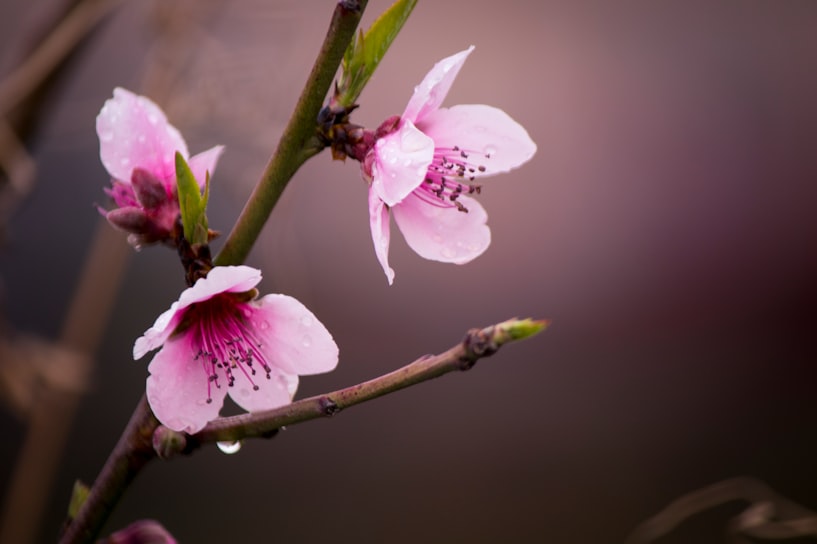Ancient Poems: Peach Spring (桃源)

I wanted to learn more about the poem mentioned in the description of Held in the Lonely Castle. The English translation below is my first attempt at translating poetry. Please bear with me if it isn’t accurate.
| Chinese | English |
| 相误。 | Mistaken meeting, |
| 桃源路。 | on Taoyuan Road. |
| 万里苍苍烟水暮。 | A hazy sunset covered thousands of miles. |
| 留君不住君须去。 | My lord is leaving and I can’t make him stay. |
| 秋月春风閒度。 | Under the autumn moon, a spring breeze blows. |
| 桃花零乱如红雨。 | The peach blossom petals scatter like red rain. |
| 人面不知何处。 | The face I long for has disappeared from view. |
-调笑集句 其二 桃源(唐·无名氏)
– Collection of Musings, Second Work, Taoyuan (Tang Dynasty – Anonymous)
The poem’s title, 桃源 (táoyuán) literally means, ‘peach spring’ or ‘source of love’, more figuratively.
From what I can find, the explanation of the poem says:
Fishing boats can easily enter spring mountains. There are other worlds besides those occupied by humanity. {Probably describing a woman} Her beautiful and slender face looks [towards me] as the flower petals fall. Her hair is messy, her hairpins horizontal [1]instead of at an angle, and neat, with an especially cold expression. She couldn’t stop her lord [2]lover-noble from leaving and doesn’t know where to go. When spring comes, there is peach blossom water [3]Literally, I’m guessing that this is water with peach blossom petals; Figuratively, I suppose this means love, but the water that leaves behind the flower is mistakenly empty {or the water without the flower petals tastes like nothing}.
This is the poem’s explanation in its original Chinese:
诗曰:渔舟容易入春山,别有天地非人间。玉颜亭亭花下立,鬓乱钗横特地寒。留君不住君须去,不知此地归何处。春来遍是桃花水,流水落花空相误
FYI: Translating this interpretation was surprisingly harder than translating the poem itself!
My interpretation:
This is a poem describing heartbreak. Traditionally, peach blossoms and spring have been used to describe love. This poem references this (more in the explanation). I would interpret the peach blossom petals scattering and falling, and the water that continues flowing without the flower petals, as fading love and heartbreak. This description seems like a pathetic fallacy, or when human emotions are attributed to aspects of nature, such as the weather. I think every culture uses some form of this. There’s something that connects emotions and nature together. The woman cannot convince her lover to stay and so the “source of her love” or “recipient of her love” is gone.
Let me know your thoughts 🙂
References: I include the full poem and its explanation above in its original Chinese but in case you wanted to refer to it, here is where I found information on the poem.
Great translation! I think 秋月春风閒度 indicates time passing from the autumn moon to the spring breeze, 閒度 is like crossing over an interval (閒 space between, 度 like 度过 cross over) defined by the previous 4 characters. That gets the poem to the time of peach flower petals falling. 人面不知何处 I think means she doesn’t know where he is. 不知何处 is a common phrase for ‘don’t know the where abouts of’. But that’s all my guessing, I can’t say for sure. The poem’s explanation is in classical Chinese, I’m not surprised it’s harder to translate. Most times, 曰 for ‘says’ or ‘meaning’ means to me I’m about to enter deep classical waters and drown.
Aah thanks for your feedback <3 Ooh! "秋月春风閒度 indicates time passing from the autumn moon to the spring breeze" I love this! I might edit my translation a bit. Omg yes!! I feel you re: 曰 Hahaha!! It's like a warning sign that tells me, 'oh boy.. time to buckle in for the long haul' [the long time it will take me to figure out what this means].